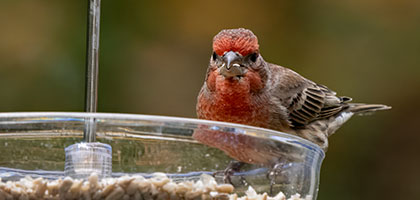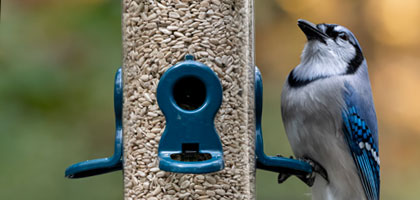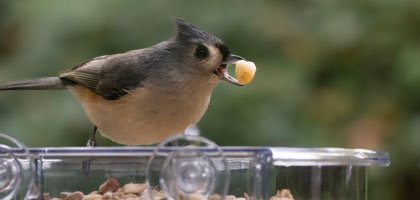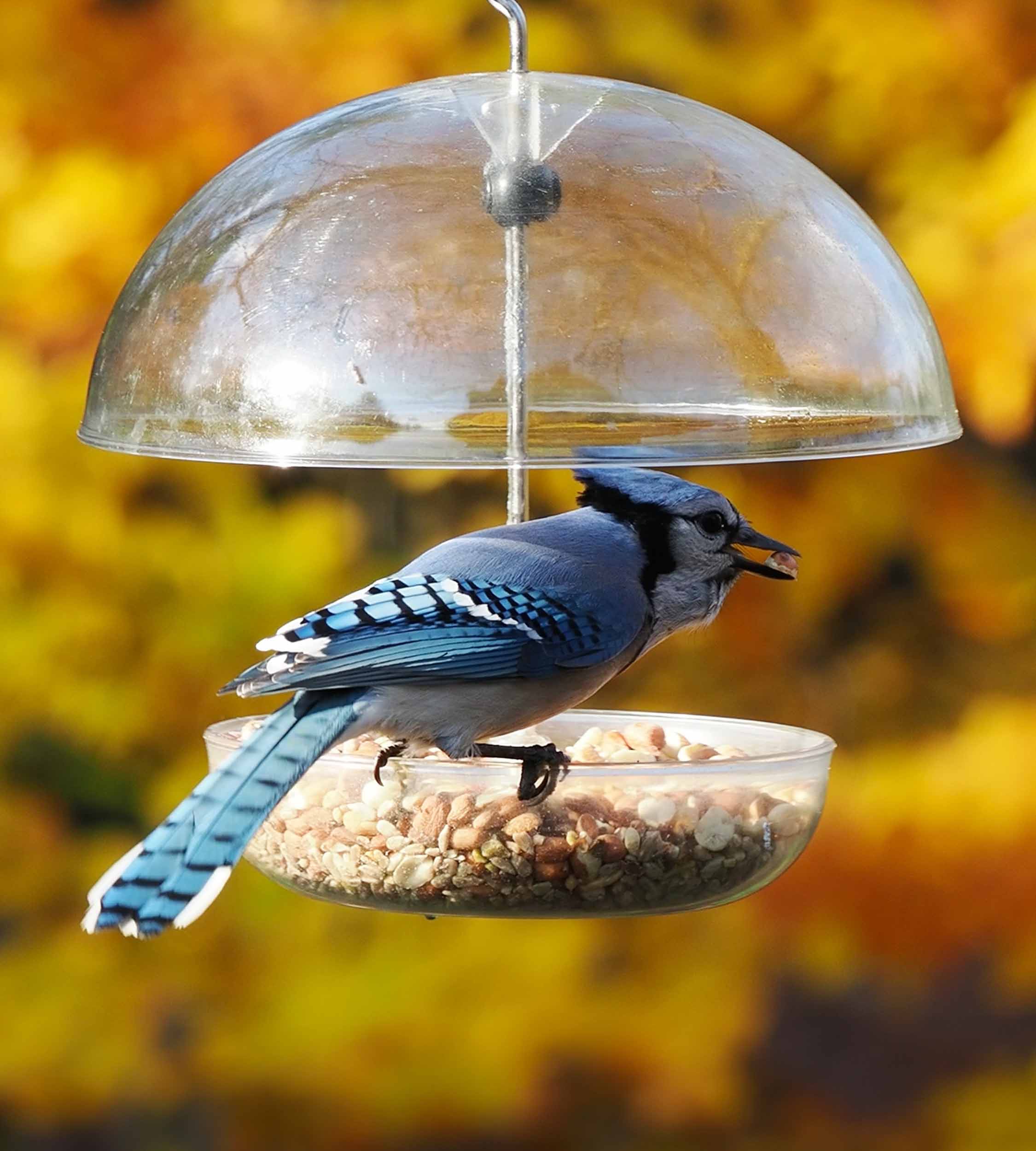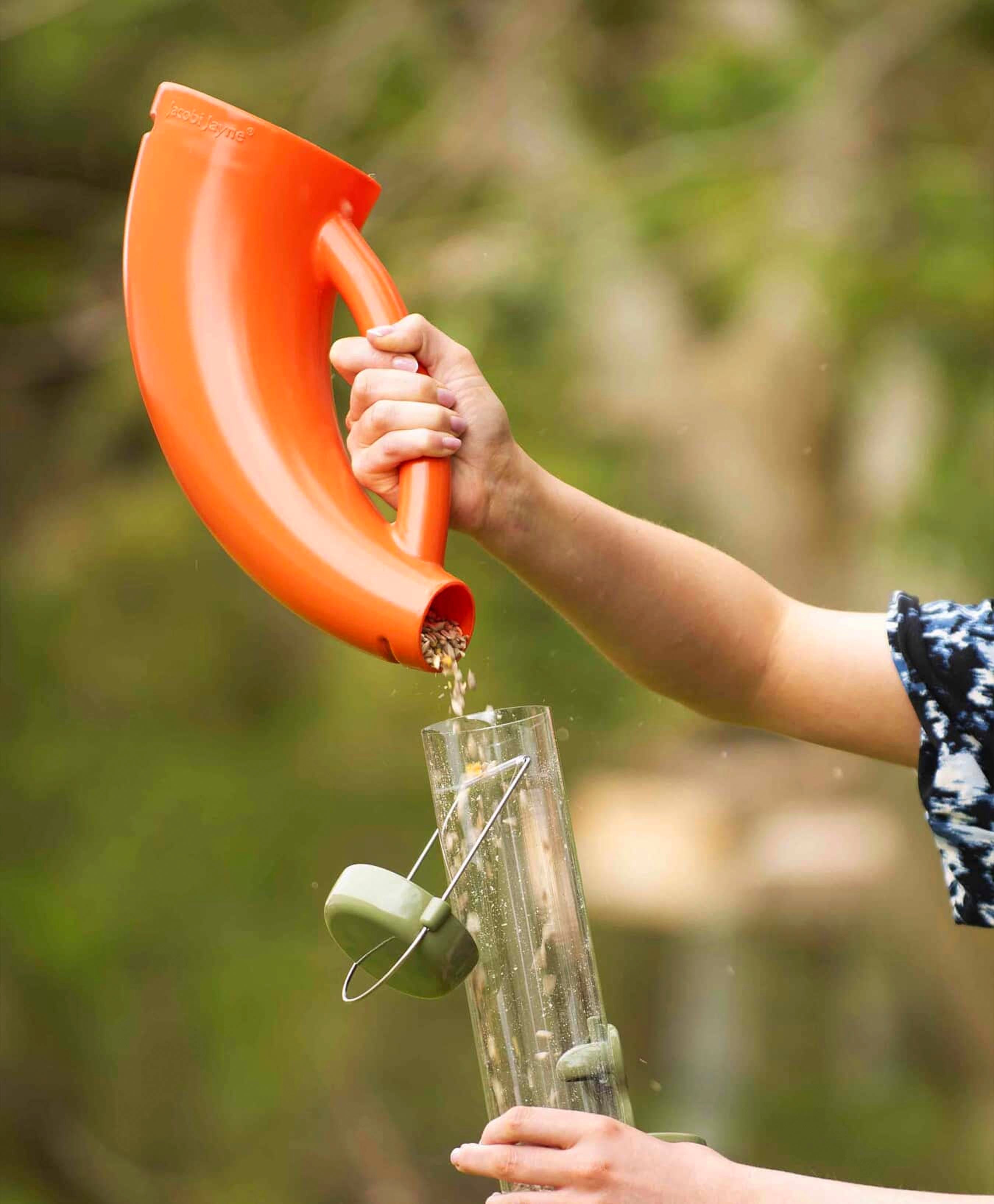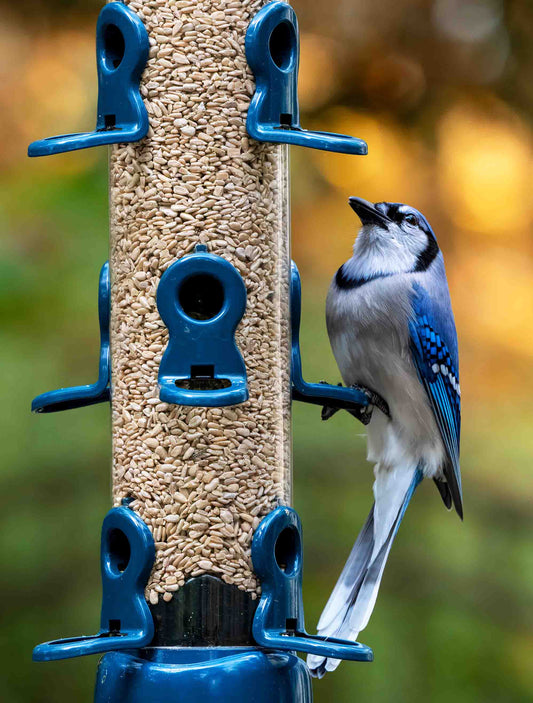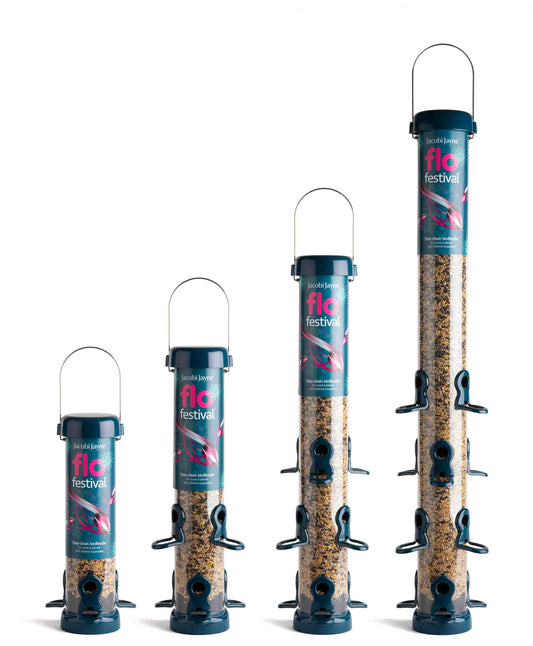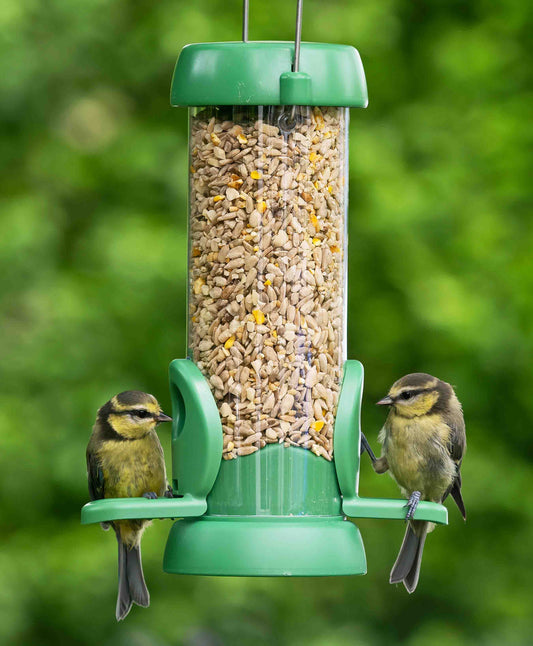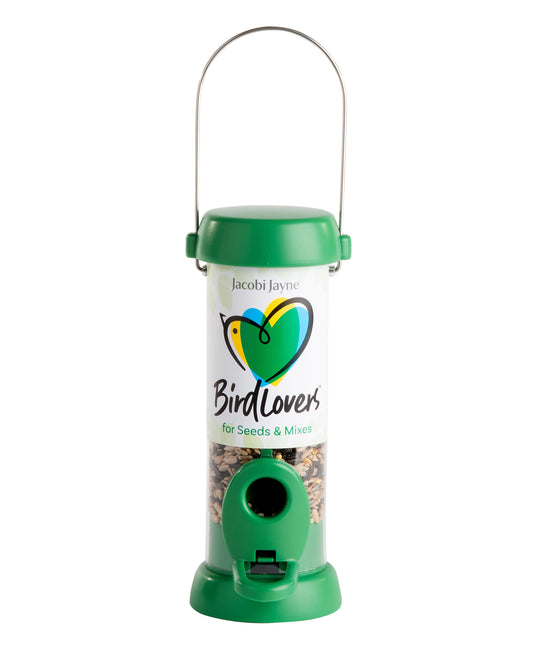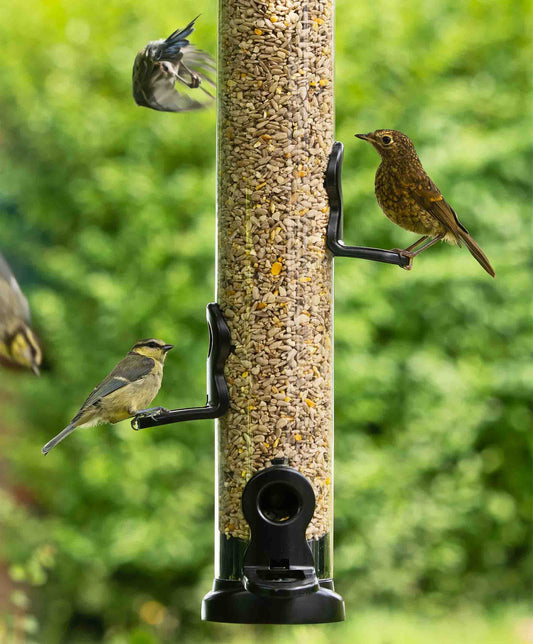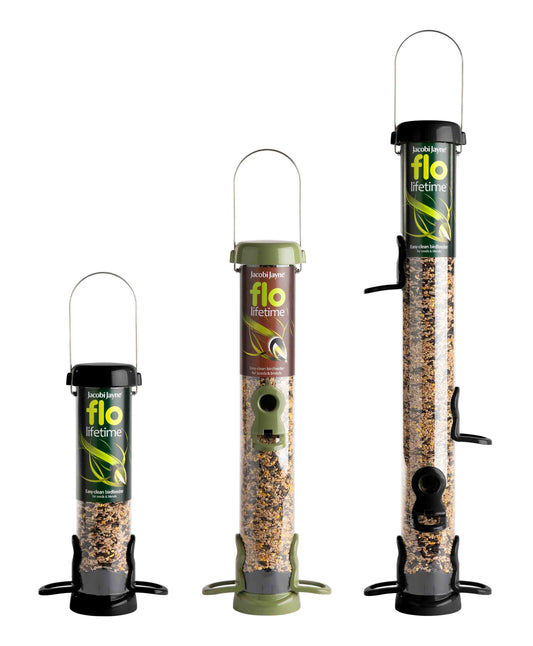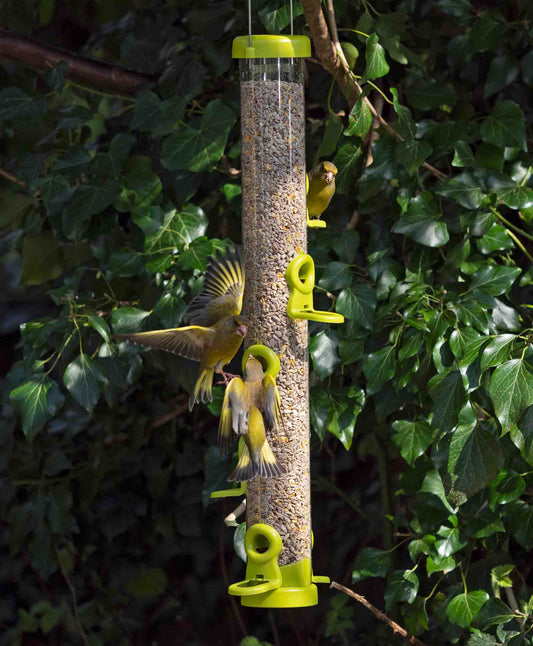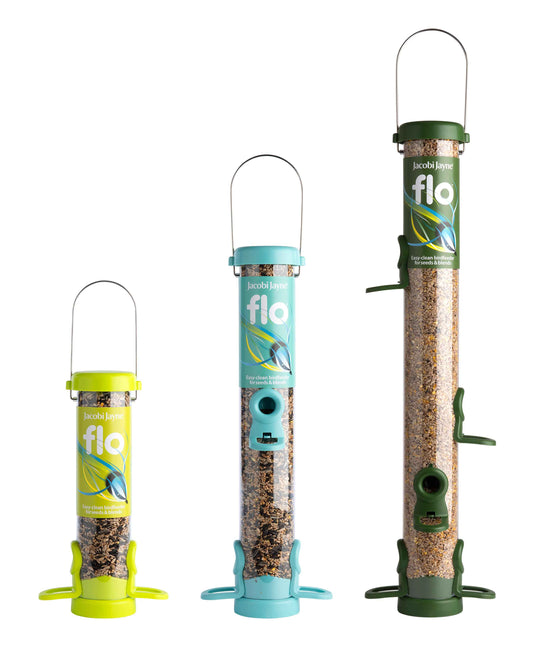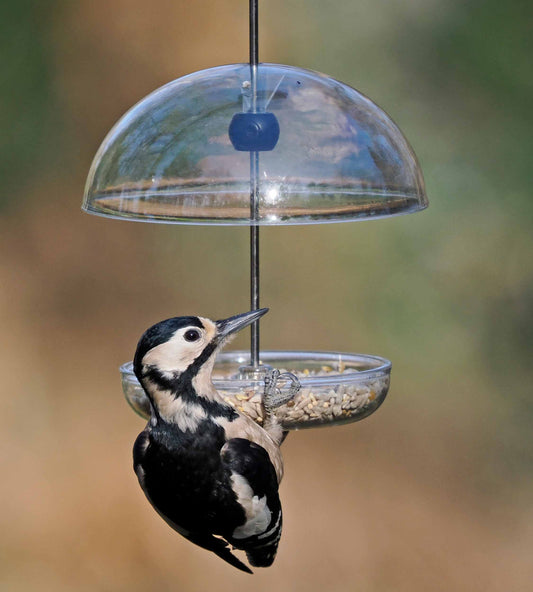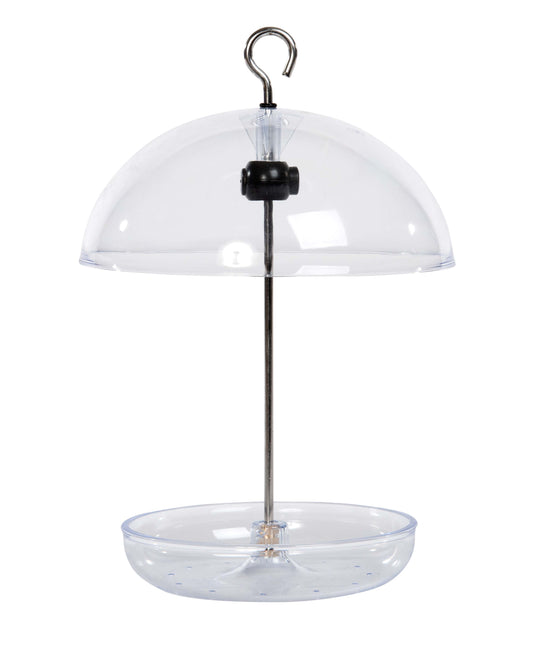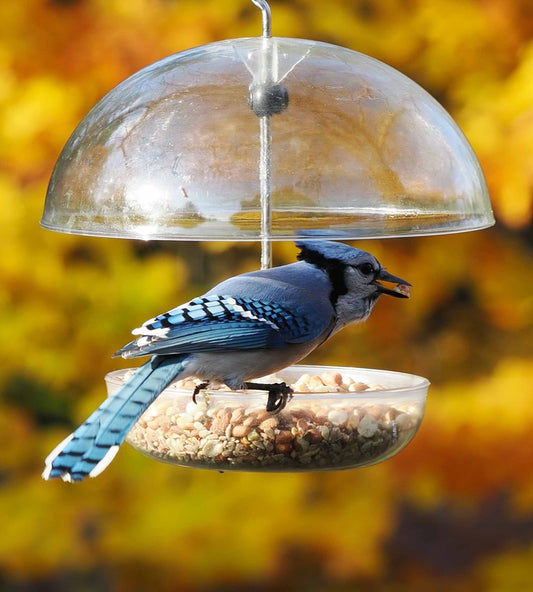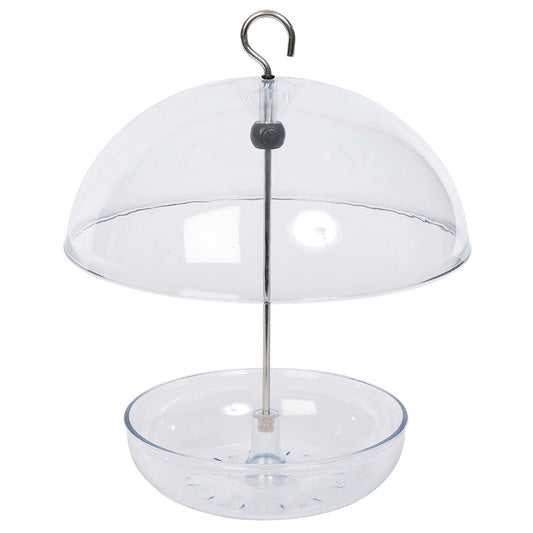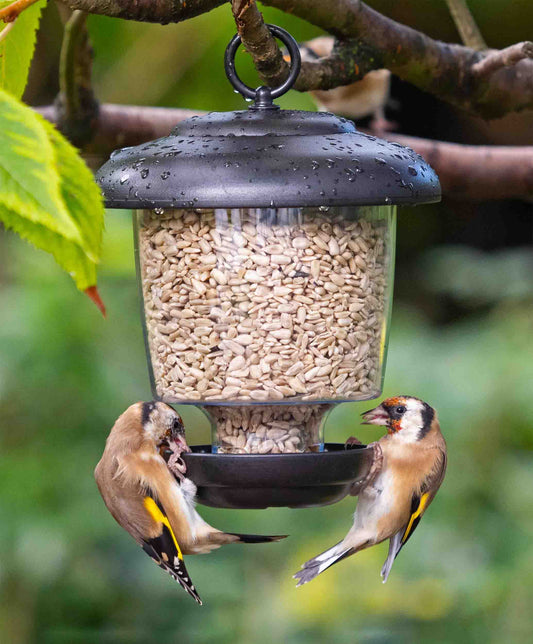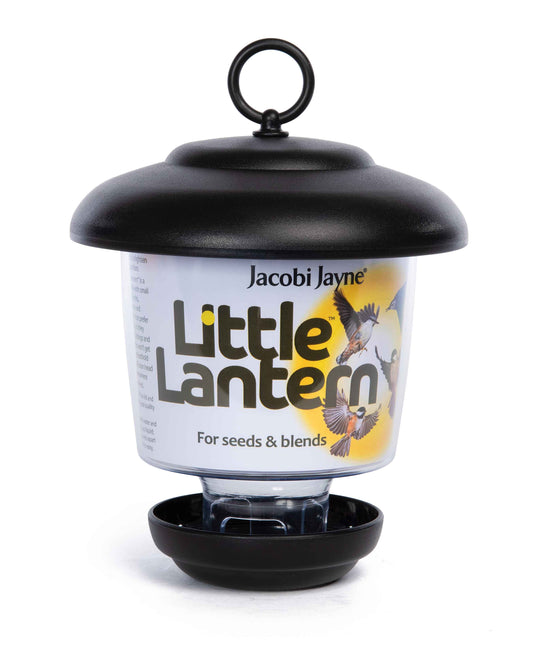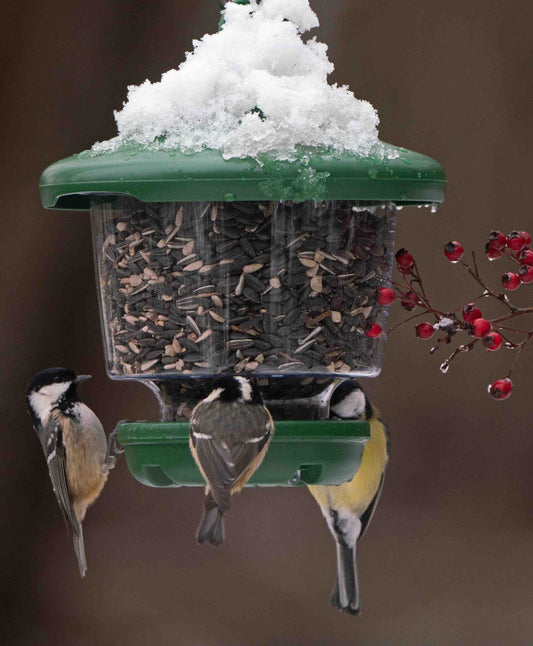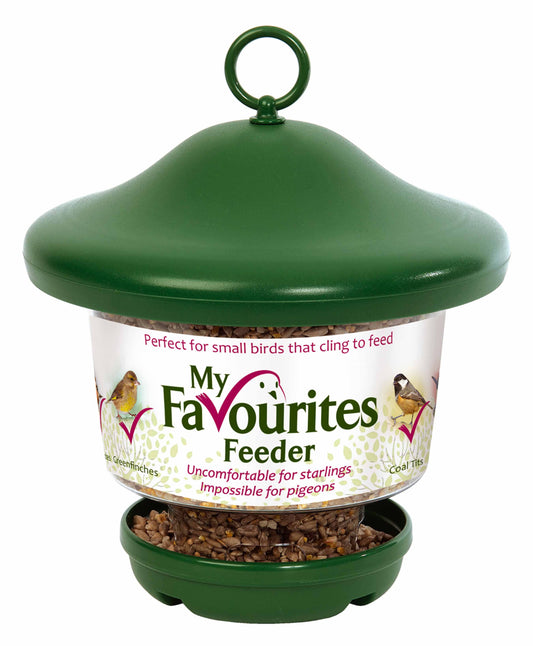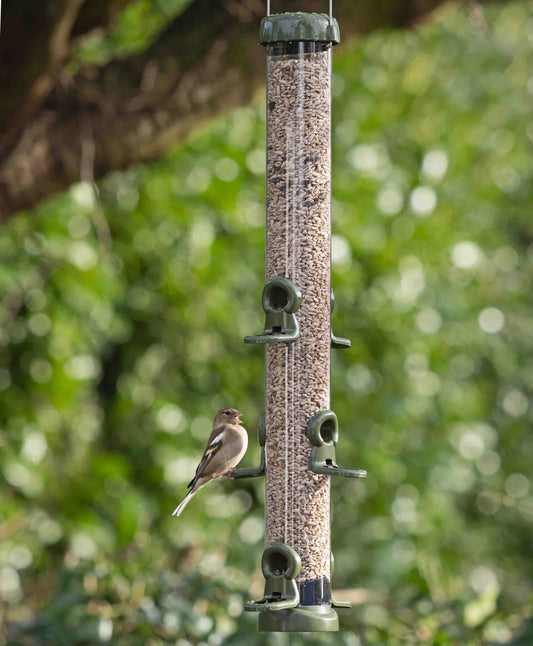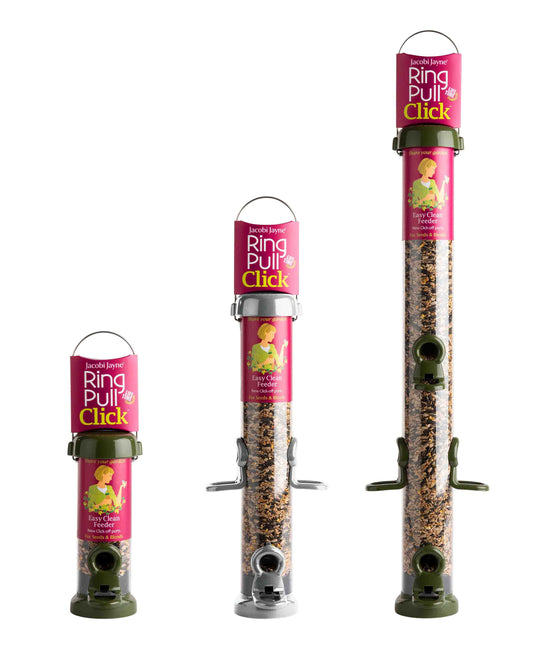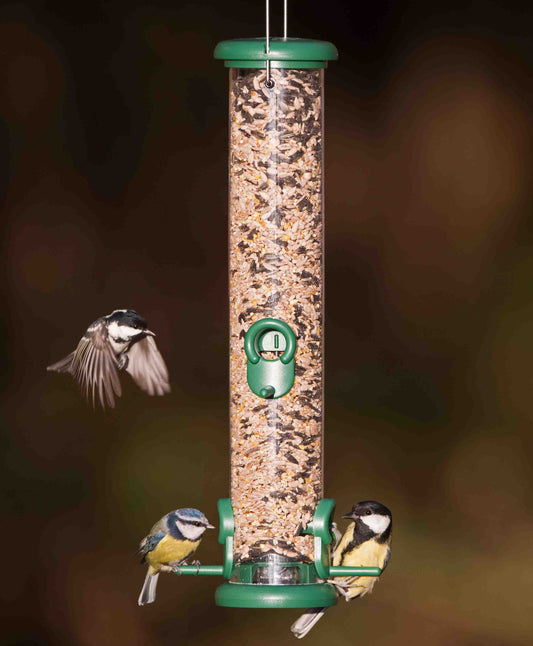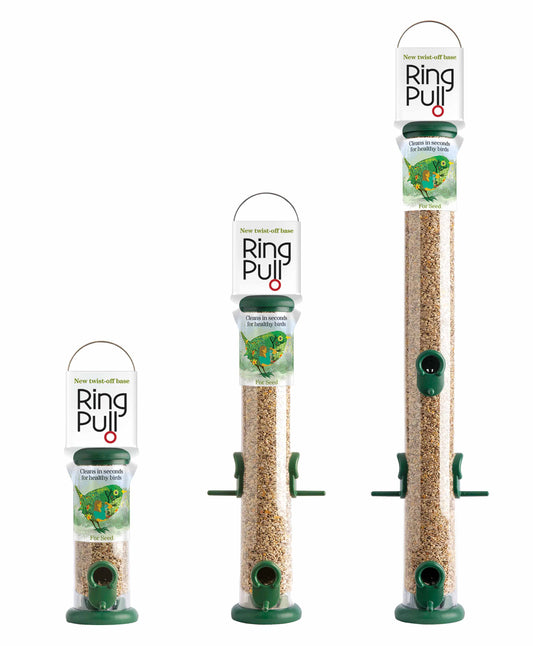-
flo Festival™ Heavy Duty Bird Feeder
Regular price From €48,95 EURRegular priceUnit price per -
Bird Lovers™ Seed Bird Feeders
Regular price From €31,95 EURRegular priceUnit price per -
flo Lifetime™ Seed Bird Feeder
Regular price From €37,95 EURRegular priceUnit price per -
flo™ Seed Bird feeders
Regular price From €14,95 EURRegular priceUnit price per -
Jacobi Jayne® Pearl Feeder Mini
Regular price €14,95 EURRegular priceUnit price per -
Jacobi Jayne® Pearl Feeder Orioles Cardinals & Blue Birds
Regular price €25,95 EURRegular priceUnit price per -
Little Lantern™ Seed Feeder, Pack of 3
Regular price €33,95 EURRegular priceUnit price per -
My Little Favorites™ Seed Feeder, Pack of 2
Regular price €43,95 EURRegular priceUnit price per -
Ring-Pull Click™ Seed Squirrel Resistant Bird Feeder
Regular price From €25,95 EURRegular priceUnit price per -
Ring-Pull™ Seed Feeder
Regular price From €20,95 EURRegular priceUnit price per
Questions & Answers
What types of seed bird feeders are best for attracting finches and chickadees?
Tube feeders are ideal for finches and chickadees. Fill them with nyjer seeds or sunflower hearts to attract these small birds. A nyjer seed feeder with multiple ports allows several birds to feed at once.
What types of birds are attracted to sunflower hearts in a seed feeder?
Sunflower hearts attract a wide variety of birds, including cardinals, bluejays, finches, chickadees, and woodpeckers. They're easy for birds to eat and provide high nutritional value.
How often should I refill my seed bird feeder?
The frequency with which you refill your seed bird feeder depends on how quickly the birds consume the food. If you’re attracting a lot of birds, you may need to refill the feeder every few days. During colder months, when food is more scarce, birds may visit your feeder more often, and you’ll need to refill it more frequently. Always check the seeds for spoilage or mold, and replace them if needed to keep the birds healthy.
